The women killed on one day around the world
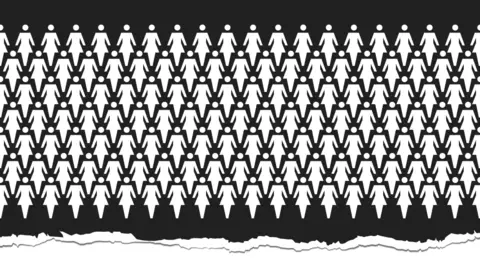 BBC
BBCAn average of 137 women across the world are killed by a partner or family member every day, according to new data released by the United Nations Office on Drugs and Crime (UNODC).
They say it makes "the home the most likely place for a woman to be killed".
More than half of the 87,000 women killed in 2017 were reported as dying at the hands of those closest to them.
Of that figure, approximately 30,000 women were killed by an intimate partner and another 20,000 by a relative.

BBC 100 Women wanted to find out more about the women behind the numbers. We spent October monitoring reports of gender-related killings of women on the first day of that month. We will share some of their stories below and find out more about how these killings were reported.
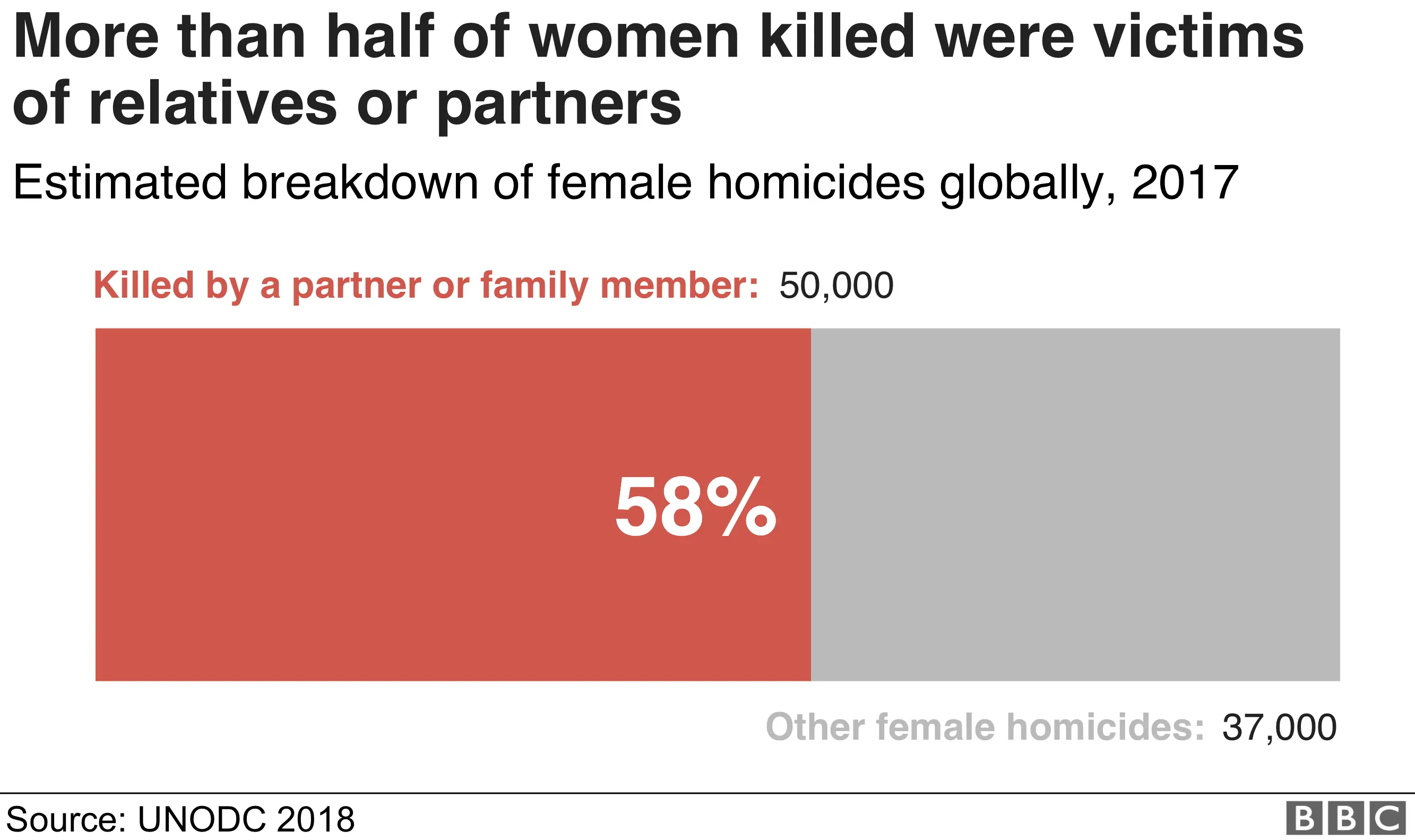 BBC
BBCMale homicide rates still higher
The data collected by UNODC highlights that "men are around four times more likely than women to lose their lives as a result of intentional homicide".
The UN indicates that men accounted for eight out of 10 homicide victims worldwide.
However, the same report suggests that more than eight out of 10 victims of homicides committed by intimate partners are female.
"Intimate partner violence continues to take a disproportionately heavy toll on women," the report states.
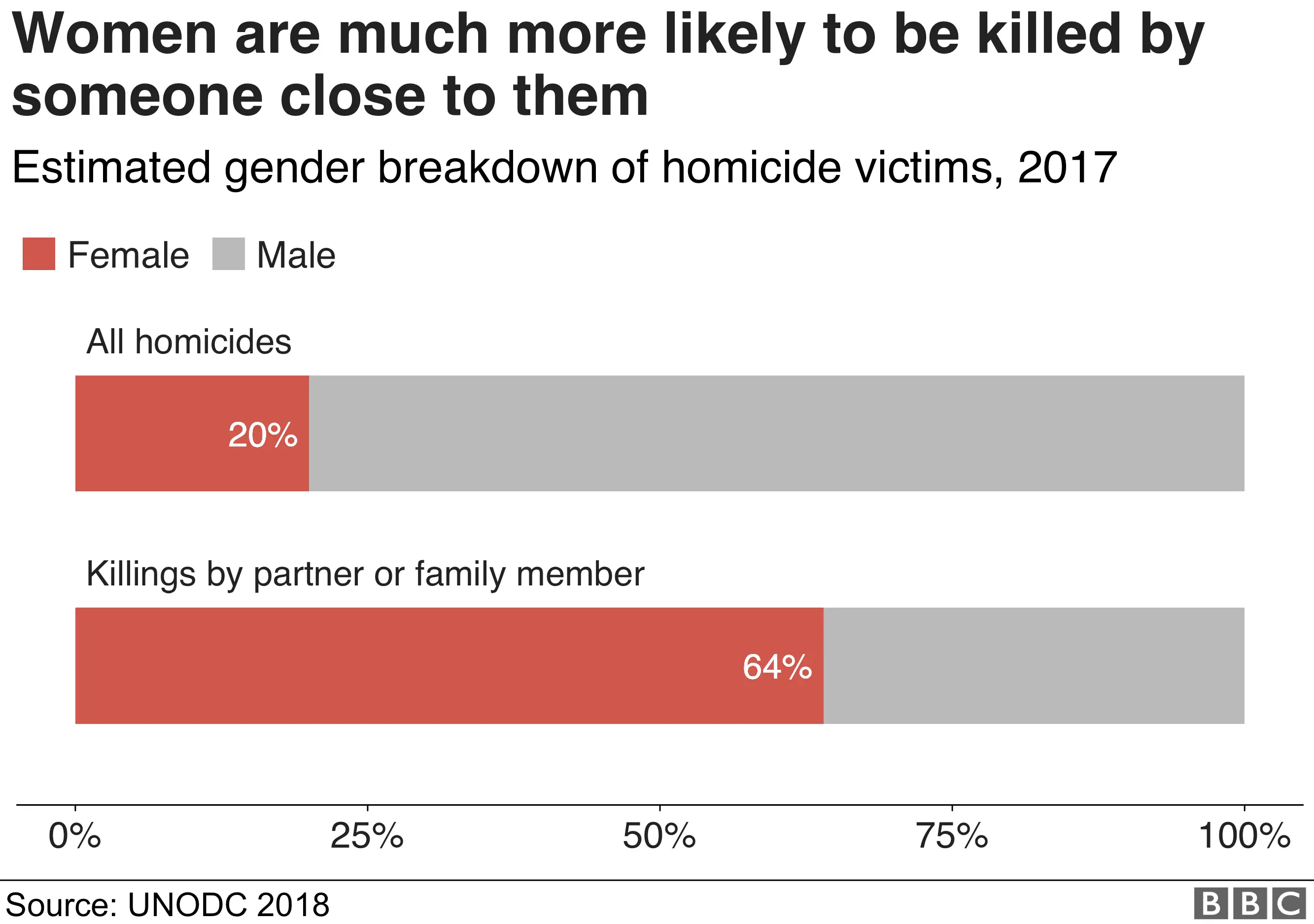 BBC
BBCForty-seven women, 21 countries, one day
The UN statistics summarise the findings for 2017 based on homicide statistics provided by government sources. The figures for "gender-related killings of women and girls", or "femicide", are collated using the criteria of intimate partner/family-related homicide.
BBC 100 Women and BBC Monitoring set out to find out more about the women behind the numbers.
We monitored press coverage of women killed by another person on 1 October 2018 around the world. Our regional specialists counted 47 women reported killed, apparently for gender-related reasons, in 21 different countries. Most of these killings are still being investigated.
Here are five of these cases, reported initially by local media and then verified by local authorities the BBC contacted.
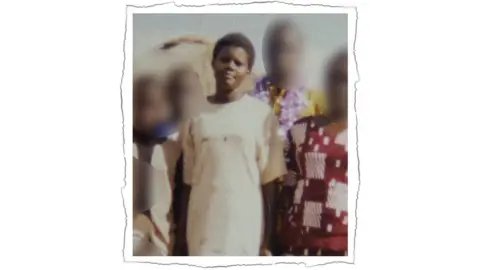 Family handout
Family handoutJudith Chesang, 22, Kenya
On Monday 1 October, Judith Chesang and her sister Nancy were out in the fields harvesting their sorghum crop.
Judith, a mother of three, had recently separated from her husband, Laban Kamuren, and had decided to return to her parents' village in the north of the country.
Soon after the sisters began their duties, he arrived at the family farm where he attacked and killed Judith.
Local police say he has since been killed by villagers.
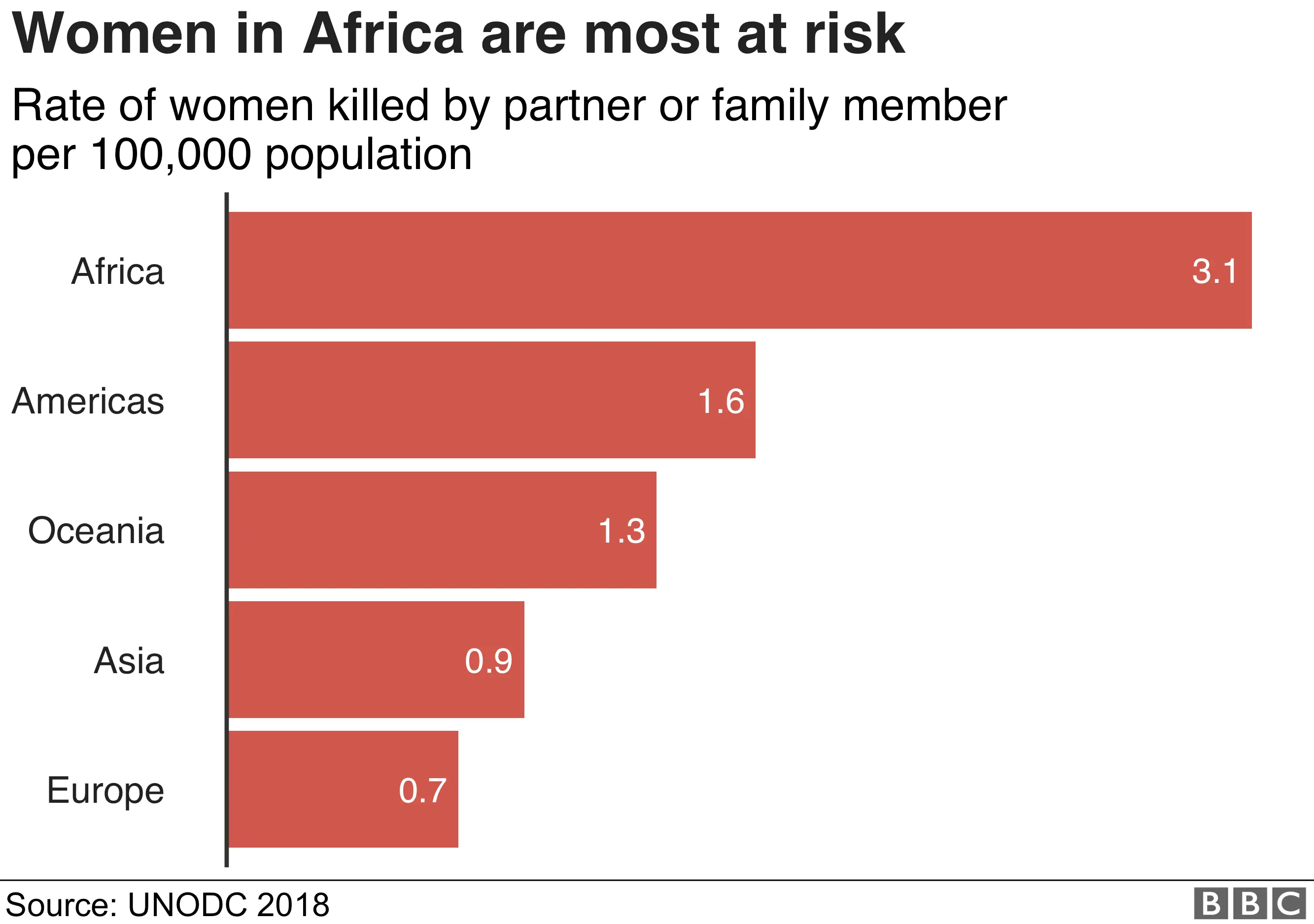 BBC
BBCAfrica was where women ran the greatest risk of being killed by their intimate partner or family member, the UN report says. It occurred at a rate of 3.1 deaths per 100,000 people.
Asia had the greatest number of women killed by intimate partners or family members in 2017, with a total of 20,000.
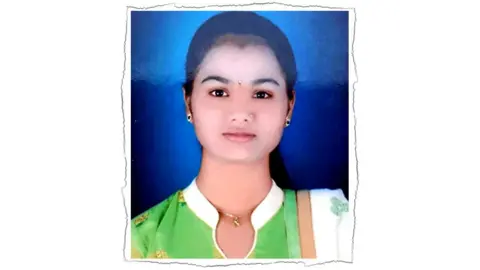 Manohar Shewale
Manohar ShewaleNeha Sharad Chaudury, 18, India
Neha Sharad Chaudury died in a suspected "honour" killing on her 18th birthday. She had been out celebrating with her boyfriend. Police confirmed to the BBC that her parents did not approve of the relationship.
Her parents and another male relative are accused of killing her in their home that evening.
The investigation continues and the three remain in judicial custody awaiting trial.
The BBC has learned from the lawyer representing Neha's parents and her male relative that they intend to deny the charges.
Hundreds of people are killed each year for falling in love or marrying against their families' wishes. Official data on so-called honour killings is hard to come by as such crimes are often unrecorded or unreported.
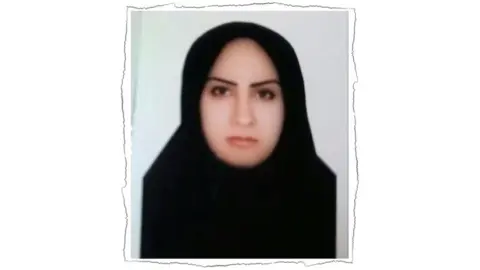 Private via Amnesty International
Private via Amnesty InternationalZeinab Sekaanvan, 24, Iran
Zeinab Sekaanvan was executed by the Iranian authorities for murdering her husband.
Zeinab was born in the north-west of Iran into a poor conservative family of Kurdish origin. She ran away as a teenager to marry in the hope of finding a better life.
Amnesty International says her husband was abusive and had refused to grant her a divorce, and that her complaints were ignored by police.
She was arrested for the killing of her husband at the age of 17.
Her supporters, including Amnesty, say she was tortured to confess to the killing of her husband, beaten by police and did not receive a fair trial.
The UNODC report suggests women who kill intimate partners have often experienced "extended periods of suffering physical violence".
Meanwhile, the motivations typically expressed by male perpetrators include "possessiveness, jealousy and fear of abandonment", the report says. This appears to be the case with another long-term couple who were found dead in Brazil on the same day that Zeinab was executed.
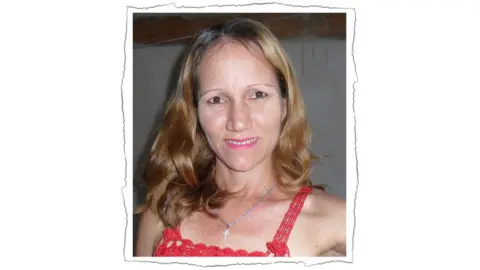 Reproduction / Facebook
Reproduction / FacebookSandra Lucia Hammer Moura, 39, Brazil
Sandra Lucia Hammer Moura married Augusto Aguiar Ribeiro at the age of 16.
The couple had been separated for five months when she was killed by him.
Police in Jardim Taquari confirmed to BBC Brasil that she was stabbed in the neck.
They found a video of her husband confessing to the crime on his mobile phone. In it, he said that Sandra was already dating another man and he felt betrayed.
He also said in the video that he would not be arrested as the couple would go to the "glory of the Lord" together. He then hanged himself in what had been their bedroom.
Sandra's case highlights a form of killing known as a "murder-suicide" - when an individual kills one or more people before killing themselves.
BBC Monitoring found 14 cases of women killed on 1 October this year in Latin America. Two were in El Salvador.
Authorities in El Salvador have told the BBC that at least 300 women have been killed so far in 2018. Karla Turcios is one of them. Watch her story here.
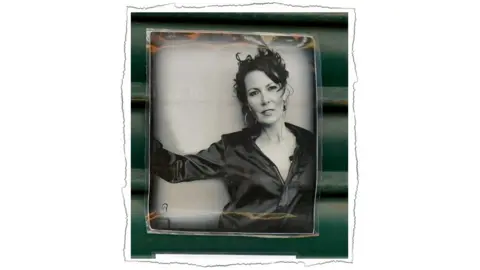 PHOTOPQR/LE PROGRES/Photo Jean-Pierre BALFIN
PHOTOPQR/LE PROGRES/Photo Jean-Pierre BALFINMarie-Amélie Vaillat, 36, France
Marie-Amélie was stabbed to death by her husband, Sébastien Vaillat.
The couple had separated after four years of marriage.
He attacked her with a knife before confessing to the police. A few days later, he killed himself in prison.
Outside the door of Marie-Amélie Vaillat's lingerie shop on Rue Bichat, residents left a sea of flowers and organised a march in her memory.
The killing of Marie-Amélie came on the same day that the French government announced new plans to tackle domestic abuse.
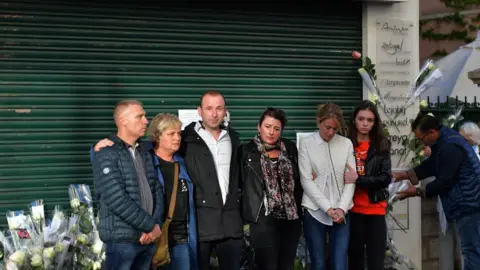 PHOTOPQR/LE PROGRES/Photo Jean-Pierre BALFIN
PHOTOPQR/LE PROGRES/Photo Jean-Pierre BALFIN
What does it take for a woman's killing to be reported?
To collect these stories, BBC Monitoring's international network of journalists and researchers analysed TV, radio, print, online and social media around the world, looking for reports of women killed, apparently for gender-related reasons, on 1 October 2018.
They found a total of 47 reports of women killed on that one day around the world. We have shared just some of those cases. There are many more where the motives were unclear, or the perpetrators unidentified.
The new UNODC report suggests that a large share of violence against women is "widely underreported to authorities and that a large share of such violence is hidden".
Rebecca Skippage, who led the project for BBC Monitoring, found that behind the numbers, "the way in which the media reported their lives and deaths revealed a huge amount about how women are viewed by different societies around the world".
She explains: "We were looking for deaths within one day, but we searched for that day's stories for a month. We found that the time-lag in reporting, the tone of the coverage or the scarcity of information often told a wider tale about the status of women in that region."
Maryam Azwer works for BBC Monitoring and drew much of the final data together.
"This is as much about the deaths that aren't reported, as those that are," she says.
"Those whose stories never reached the media, that went unreported, were unverified, or were not or could not be investigated. It makes you wonder: what does it take to make a woman's killing important enough to be reported?"

Help and advice
If you, or someone you know, have been affected by domestic abuse or violence, these organisations in the UK may be able to help.
Outside the UK, there are other organisations which provide advice and protection for people at risk of violence or abuse. If you feel in danger, try to find out which local organisations can best advise and help you.

All photographs subject to copyright
Reporter: Krupa Padhy
Producer: Georgina Pearce
Research: BBC Monitoring
Data journalism: Christine Jeavans and Clara Guibourg. Design: Zoe Bartholomew. Development: Alexander Ivanov


What is 100 Women?
BBC 100 Women names 100 influential and inspirational women around the world every year and shares their stories.
It's been a momentous year for women's rights around the globe, so in 2018 BBC 100 Women will reflect the trailblazing women who are using passion, indignation and anger to spark real change in the world around them.
